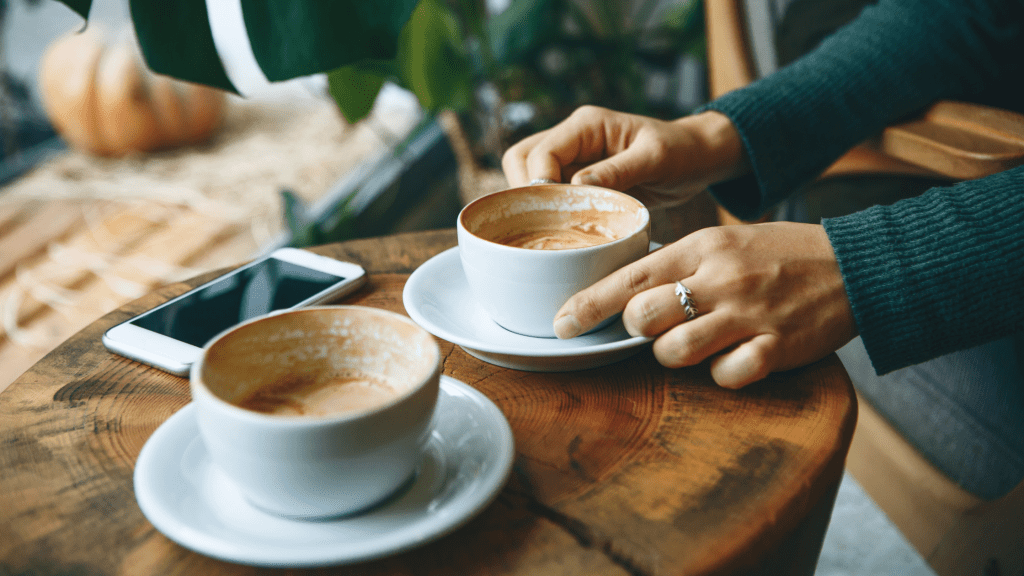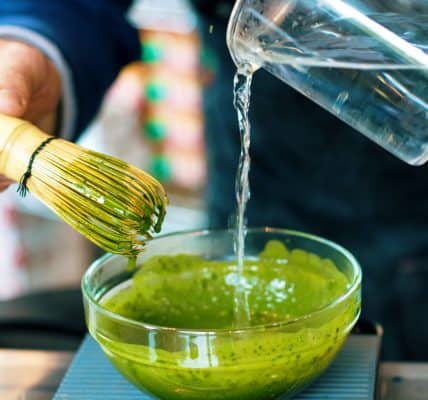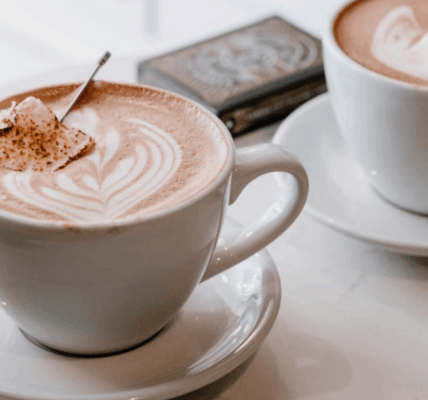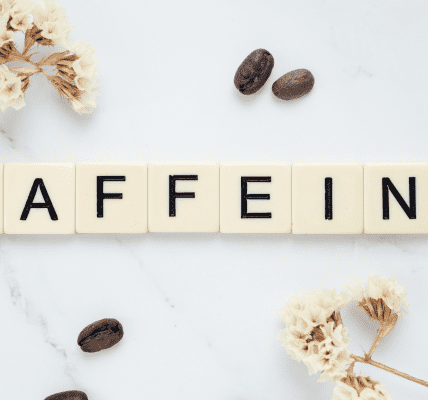
For many people, the aroma of coffee in the kitchen is all it takes to wake up. But many coffee-heads start to experience a drop in the energizing effect of the beverage over time. You may resort to a few extra cups, but the real question is, why doesn’t caffeine affect you?
The way caffeine affects people can vary from one person to another due to exhaustion, genes, or medical history. Coffee may also not feel strong enough if the quantity is too little – or too much! But a few lifestyle changes, along with the right coffee, can enhance its effects.
Today I’m going to help you understand how caffeine affects you – and how you can get the best effects of this stimulant. So keep reading!
What Does Caffeine Do?
Table of Contents
On days that demand my complete concentration, coffee is a must-have. It’s the no.1 psychoactive beverage – but interestingly, it’s not an energy source. It only tricks your brain into thinking that you don’t need rest.
To understand how this happens, you must first understand the function of the neurotransmitter called Adenosine. When it binds to its receptors, it slows down neural activities, making you feel sleepy.
Now, caffeine’s structure is similar to that of Adenosine, which is why it can bind to Adenosine receptors. Thus, it blocks the neurotransmitter and prevents you from feeling the need for rest!
It also slows the body’s reabsorption of Dopamine, so your brain feels the neurotransmitter’s ability to boost motivation and happiness. It leads to neural excitation, and your body thinks there’s an emergency, resulting in Adrenaline release.
Thus, caffeine neither reduces your need for sleep nor increases your energy. It simply slows down your ability to feel tired and leaves you feeling energized longer.
Interestingly, caffeine even has other animals hooked, though they react a little differently to it. Here’s a cute video that explains how caffeine works.
Why Doesn’t Caffeine Affect You? – 5 Reasons
Many people complain that they do not feel the awakening effects of caffeine. You may wonder why that is or why your body’s response to caffeine changes over time.
Here are five reasons your body and mind are not responding to caffeine the way you want.
a) Genes
If you are unable to experience the full impact of caffeine, it might be because you are genetically wired that way. Studies show that around 10% of the population is hyposensitive to caffeine, i.e., they can consume it without feeling its effects.
Even if you are not part of this group, you might belong to the half of the population that digests caffeine faster. You see, caffeine is primarily metabolized by the CYP1A2 enzyme in the liver – and there are two types of CYP1A2.
One form of the enzyme boosts the speed of metabolizing caffeine compared to the other, which means the impact will not be strong enough, and it won’t last long, either. And it’s your genes that determine what type of CYP1A2 you have.
Another genetic factor that affects your ability to feel the caffeine kick is the ineffective binding between the Adenosine receptors and caffeine. The stimulant’s molecules might slide by the receptors, failing to block the sleep-inducing effects of Adenosine.
b) Tolerance
Caffeine not only attaches to Adenosine receptors but also triggers their increase as the brain feels there aren’t sufficient receptors. So, with more Adenosine receptors in your system, you start needing more caffeine, i.e., you become immune to the regular dose.
So too much caffeine could be why you can’t feel its effects. And surprisingly, the caffeine source isn’t just your morning coffee but also other energy drinks, supplements – or even medicines for pain, cold, fever, etc., which cause cross-tolerance.
Some medicines like birth control pills or beta-blockers delay caffeine processing and elimination, causing side effects. Meanwhile, it takes much longer for you to feel the energizing impact of the stimulant on your mind or body – or you don’t enjoy it at all.
Caffeine can become ineffective due to smoking as nicotine doubles the rate at which your body utilizes caffeine. If you’re stressed, drunk, or suffering from physical or mental conditions, caffeine might be effective for a short while and then make you sleepy.
c) Too Little Caffeine
In an attempt to avoid caffeine tolerance or drug interactions, you might end up consuming too little caffeine. As a result, you cannot feel the positive effects of caffeine, like alertness, wakefulness, focus, etc.
Studies comparing the effects of different amounts of caffeine show that small doses can make low or no changes at all. How much or how little of this stimulant you need can vary depending on your body and age.
Anything between 50mg and 200mg of caffeine can be counted as a low/moderate quantity. If you’re already used to a cup of coffee a day for many years, it might not succeed in stimulating you at all, especially if you’re sleep-deprived or stressed.
It’s important to note that certain coffee types may not have enough caffeine content. For instance, if you take decaf or instant coffee powder, you won’t get the same results as a cold brew or drip coffee made using beans.
d) Sugar and Milk Content
Adding sweeteners to your coffee can signal your body to produce more insulin and cause your blood glucose level to drop. As a result, you feel more tired, sleepy, irritable, and have other symptoms that caffeine is known to get rid of.
This is what we usually call the sugar crash, and the effects are even more drastic if your body is not used to added sweeteners. So, if your first cuppa in the morning makes you sleepy rather than energetic, it might be due to the sugar or honey in it.
Another addition to your joe that might counteract the effects of caffeine is a dairy creamer. Dairy contains an amino acid known as Tryptophan that converts to Melatonin, thus making you relaxed and sleepy.
While milk contains relatively low doses of tryptophan, you may still experience drowsiness or tiredness. Ditching your morning dairy consumption and adding a plant-based creamer or no creamer at all should reveal if milk is the real culprit.
e) Too Little Sleep
You may think that a gallon of coffee a day can keep all the sleep away. But you must remember that caffeine is neither a direct source of energy, nor does it reduce your body’s requirement for sleep and rest.
As an adult, you need at least 7 hours of sleep on a daily basis so your mind and body can function properly. When you don’t do that, you end up owing sleep to yourself – and accumulate a lot of sleep debt.
Sleep deprivation can mess with your circadian rhythm and disrupt your everyday sleep-wake cycle. Don’t forget that your circadian rhythm is responsible for your daily energy dips, like during the afternoon hours.
So, caffeine won’t have your back if you’re severely sleep-deprived – or help you stay focused during your daily energy slumps. Contrarily, it can affect your sleep patterns and make it difficult to get enough rest at night, adding to your sleep debt.
How to Get More Energy from Caffeine: Simple Solutions
Clearly, you need to make some changes to feel the kick of caffeine properly. Let’s discuss the best ways to drink coffee to make the best of its stimulating effects!
1. Pick the Right Caffeine Dosage.
Determine the right caffeine amount your body needs. Depending on whether you take too much or too little caffeine, adjust this amount. Anything between 50mg and 400mg can be safe and effective.
Be careful because it’s easy to go overboard while increasing the dosage. You’ll end up feeling over-stimulated or becoming caffeine-tolerant. On the other hand, cutting down suddenly can cause withdrawal symptoms.
2) Go On A Caffeine Detox.
It is possible to reset your caffeine tolerance if you try to reduce your coffee intake slowly and remain patient. Start by gradually cutting down on coffee and other caffeine sources. You can replace a few cups with decaf to trick your brain.
Then, try caffeine cycling by cutting it off completely. If you find this coffee detox too challenging, implement it briefly and have mildly caffeinated beverages. Include caffeine cycling in your new coffee routine to prevent tolerance.
3) Wait Before Your First Dose.
Drinking a steaming cup of coffee first thing in the morning can be a waste of caffeine’s stimulatory effects. At this hour, your body already has high levels of cortisol trying to wake you up. So caffeine does nothing extra.
By the time you begin to feel the first lull, caffeine starts to wear off. So, have your first coffee between 9.30 am and 11.30 am. You can also enjoy your first cup at 9.30 am, followed by more cups every hour till 3-4pm.
4) Drink Before Your Energy Dips.
You may want to stay alert through an afternoon meeting or evening presentation. So drink your coffee around half an hour before that. Monitor yourself for a few days to find your slump hour – and time the drink beforehand.
Caffeine’s job is to prevent the feeling of tiredness or sleepiness from setting in. But if you already start feeling the energy dip, it means Adenosine is already hooked to the receptors, or your circadian cycle is at work.
5) Take A Caffeine Nap.
An interesting way to get the best out of caffeine is to take a short nap – right after drinking coffee. This might sound unconventional, but you’ll wake up feeling refreshed. And your body and mind will thank you.
It can take a while for your bloodstream to absorb the caffeine and send it to your brain. During this time, take a light caffeine nap, so your system eliminates the Adenosine. Once you wake up, you’ll have 2 hours of focus and energy!
6) Choose the Right Caffeine Source.
Check out the type of coffee beans used in your coffee. For instance, Robusta packs twice the caffeine compared to Arabica beans. You should also ensure you’re not on decaffeinated coffee, the weakest caffeine source.
I always suggest that you should avoid synthetic sources of caffeine, like energy drinks, soda, supplements, etc. Instead, go for more mellow sources like tea. You can also munch on dark chocolate or kola nuts.
7) Take Small and Regular Doses.
Instead of drinking large mugs of coffee, take small doses of caffeine. For instance, divide your morning and afternoon coffee into multiple cups at intervals of an hour. This will prevent sudden peaks and dips in caffeine’s impact.
You also try other healthy sources like tea, espresso, etc., which affect your body differently. They are more effective in keeping you alert in a natural and consistent way. Plus, you won’t experience a caffeine crush.
Non-Caffeinated Ways to Get More Energy
You now know how to get stimulated when caffeine doesn’t affect you. But that’s not all. You should also work on ways to get real energy.
Take a look at what you can do to feel more energetic – without gulping down caffeine sources:
a) Get Sufficient Sleep.
It’s no news that sleep can make you feel more focused and energetic. That’s because it enhances your ability to release energy molecules called ATP. So get at least seven hours of sleep – and don’t forget to squeeze in 10-min power naps throughout the day.
b) Exercise Regularly.
Exercise can send oxygen and nutrients to your tissues and improve your heart and lung health. Plus, it can boost Dopamine and Serotonin levels. Thus, working out regularly can give you both physical and mental energy.
c) Catch Natural Sunlight.
Exposure to the sun during the day can suppress Melatonin, which is the sleep-inducing hormone in your body. It also helps release Serotonin to improve your mood. Thus, catching some natural daylight can energize you even when you sit by the window.
d) Take a Cold Shower.
Taking a cold shower can improve your heart rate and metabolism. It can also decrease your body temperature and Melatonin levels. As a result, you experience a sudden jolt of energy due to the release of endorphins, your happiness hormones.
e) Have a Balanced Diet.
Incorporate complex carbohydrates, good fats, and proteins into your diet as they provide energy to your body. Also, include vitamins and minerals that help in the absorption of these macronutrients. And remember to stay hydrated!
Final Words
You may have been drinking gallons of coffee lately, with no significant rise in energy levels, leaving you to wonder – Why doesn’t caffeine affect you? The good news is you now not only know the reasons but also the tricks to maximize caffeine’s effects.
However, I suggest you start making small changes in your lifestyle so that you can remain energized. I guarantee that these changes will also complement the effects of caffeine.



